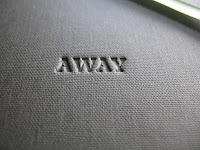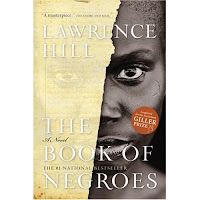 Zesty and I went to Costco the other weekend and I bought a lot of stuff. Well, not a lot of stuff, but I was kind of like a kid in a candy store because I’m not a regular Costco shopper. So, for the bookish girl, seeing giant stacks of books incites a certain kind of glee, so of course I piled a bunch of ‘off the list books’ (ones that we don’t publish or that I can’t get reading copies for) into my cart. The first one I tackled was Liz Tuccillo’s How to Be Single. (Yes, I’m still on the chicklit kick). What a disappointing book. It’s stereotypical, bland, relatively plotless and utterly unbelievable.
Zesty and I went to Costco the other weekend and I bought a lot of stuff. Well, not a lot of stuff, but I was kind of like a kid in a candy store because I’m not a regular Costco shopper. So, for the bookish girl, seeing giant stacks of books incites a certain kind of glee, so of course I piled a bunch of ‘off the list books’ (ones that we don’t publish or that I can’t get reading copies for) into my cart. The first one I tackled was Liz Tuccillo’s How to Be Single. (Yes, I’m still on the chicklit kick). What a disappointing book. It’s stereotypical, bland, relatively plotless and utterly unbelievable.
The premise — five single women in NYC in their mid-to-late 30s love, redemption and self-satisfaction — falls short of actually driving the action of entire novel, so Tuccillo invents an entirely ridiculous ‘adventure’ for her main character, Julie Jenson. See, Julie’s unhappy being a publicist at a publishing company so she decides, on a whim, to march into the publisher’s office and pitch a book about “How to Be Single.” Julie will travel the world and meet all kinds of single women from all kinds of different countries and then she’ll write a book. It’s Eat, Prey, Love in spades. Only it’s not because what it means is that Julie, THE MAIN CHARACTER AND NARRATOR, introduces the action and her four best friends who only know one another through her, and then LEAVES THE CITY. But she still TELLS THE STORY.
So that means all the stories are told from Julie’s point of view, even though she’s not anywhere near the action of the other four characters: lawyer Alice (who left her job to be on permanent “man” hunt); Georgia (whose husband recently left her and the kids to take up with a samba teacher); Ruby (overweight and depressed about her dead cat); and Serena (a hippie cook who works for a famous family only to leave to try and become a swami). The whole book is full of situations that are completely and utterly unbelievable. Of course, Julie meets a wonderful man in Paris with only one hitch; he’s married, but wait! It’s an open relationship! Yawn.
And we could run through the bland things that happen to the other four women but it’s not worth the energy it would take for my fingers to type it out. Not one aspect of the book (until we get to the VERY end) is about the women living happy and fulfilled single lives. They’re hysterical, depressed, somewhat crazed, and on the hunt for the “right” man the entire time. Tuccillo doesn’t break down a single cliche or take the story in any remotely original direction. And, I’ve got to say, it’s honestly some of the worst dialogue I have ever read on paper. For the most part, I wasn’t remotely interested in what happened to a single one of these women. Because they didn’t feel real. They didn’t feel passionate. They were stereotypes of women I see in sitcoms. They were Rachel and Monica, Miranda and Carrie, and with none of the quirks that make those characters endearing or original.
I have to say too, that the premise of the novel, when you first pick it up, is interesting, and I would have enjoyed it a lot of there was a whiff of these women embracing their single lives and actually growing from beginning to end. I’ve already given my copy away and I don’t want it back.







